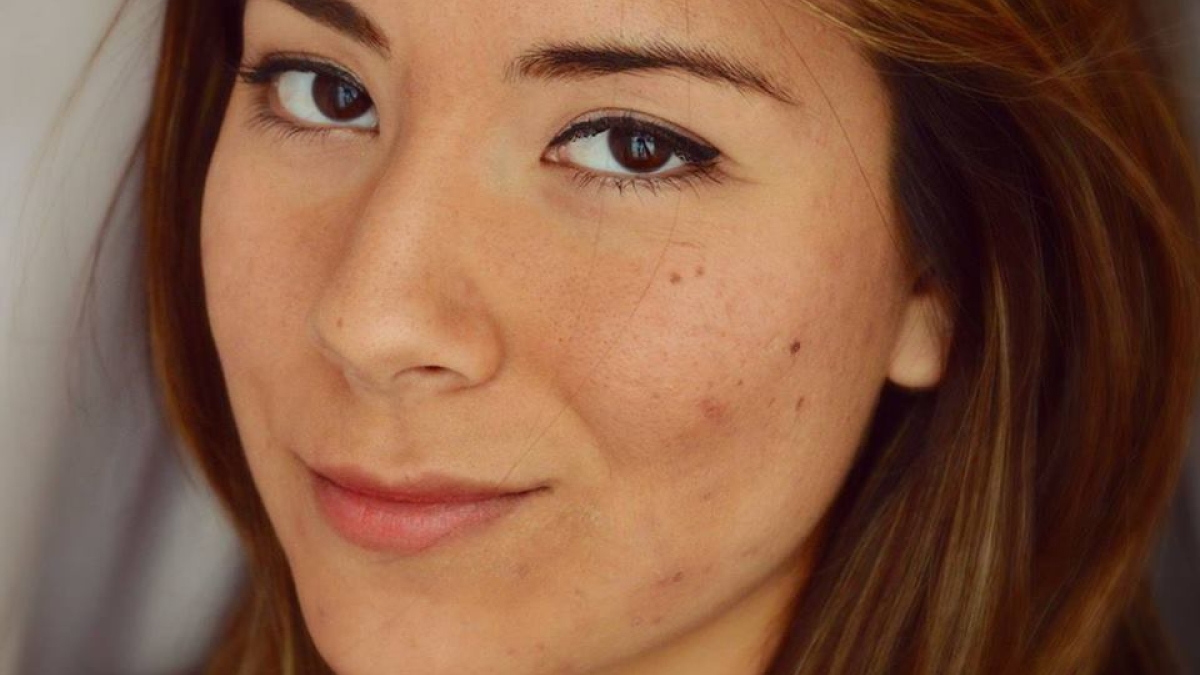Editor’s note: This is part of a series of profiles for spring 2017 commencement. See more graduates here.
Keyaanna Pausch graduates from ASU this week – something she says might not have happened if she hadn’t discovered ASU’s digital culture program in the School of Arts, Media and Engineering, a transdisciplinary unit formed between the Herberger Institute for Design and the Arts and the Ira A. Fulton Schools of Engineering. The digital culture program teaches students to use digital tools and integrate computational systems with everyday physical human experience.
Pausch started ASU confused about her major.
“I loved math and logic as an engineer but hated the idea of calculating numbers for making a bridge, finding the velocity of a ball or looking at number patterns,” Pausch said. “I still wanted to be creative and use my interest in math to create visually interesting products like 3-D printing sculptures, interactive installations and creating video effects.”
One day, her dad showed her a brochure that had come in the mail detailing ASU’s new digital culture major, and since that day, Pausch has been thankful.
“I did not think a program like digital culture existed,” she said. “In fact, it sounded like heaven to me. It combined both of my interests: creativity and logic.”
If she had never switched majors, Pausch said she probably would have lost motivation and flunked out of school, or, if she had graduated, she would have been unsatisfied.
"Being at the Herberger Institute has significantly changed my creative outlet and presented new obscure ways for me to experiment with technology and art,” she said.
Todd Ingalls, an associate professor of research in the School of Arts, Media and Engineering, mentored Pausch, who participated as an undergrad research assistant with the Synthesis Center.
"He showed me a lot of programming techniques that blew my mind," Pausch said. "Now I feel more abstract and technical with my craft when programming interactive installations."
Pausch answered some questions about her time at ASU.
Q: What's something you learned while at ASU — in the classroom or otherwise — that surprised you, that changed your perspective?
A: Taking WST 100: Women, Gender, Society dramatically changed my perspective and introduced me to topics that I've been oblivious to like politics, body representation, personal empowerment, sexuality, gender and identity.
Q: Why did you choose ASU?
A: I chose ASU because I wanted to attend a four-year university close to my home before I venture out to other states/countries.
Q: What's the best piece of advice you'd give to those still in school?
A: Explore college to the best of your comfort and ability to learn more about yourself, whether that'd be courses you're curious about to develop your perspective on politics, religion and gender/identity or attending social events/clubs like intramural sports or swing dancing. Give time to learn more about yourself and develop as an individual to think and create on your own and to enjoy being with yourself.
Q: What was your favorite spot on campus, whether for studying, meeting friends or just thinking about life?
A: The best building on the whole campus is Design North. There's a quiet cafe, a beautiful underrated library and a balcony to eat lunch at. It's the least crowded area on campus and has great atmosphere.
Q: What are your plans after graduation?
A: I will be applying to intern with the intension of building a career at art institutions like the Phoenix Art Museum, the Scottsdale Museum of Contemporary Arts or the Arizona Commission of the Arts.
Q: If someone gave you $40 million to solve one problem on our planet, what would you tackle?
A: Abolishing cigarettes completely.
More Science and technology
2 ASU faculty elected as fellows to National Academy of Inventors
Arizona State University faculty members Bertram Jacobs and Klaus Lackner have been elected as fellows to the National…

Harvesting satellite insights for Maui County farmers
Food sovereignty can refer to having access to culturally significant foods, but Noa Kekuewa Lincoln believes it goes farther…

Google grant creates AI research paths for underserved students
Top tech companies like Google say they are eager to encourage women and members of historically underrepresented groups to…
